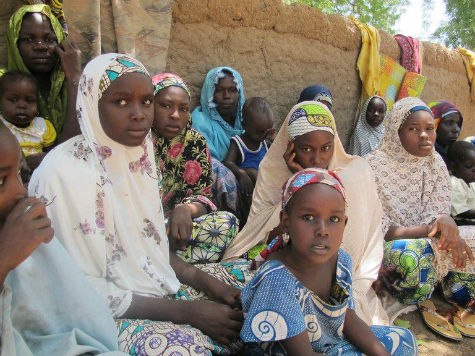A citizen of Niger has been convicted of enslaving his fifth wife.
The man crossed the line because Niger apparently only allows for four wives under the country’s interpretation of Islamic law.
It took Niger until 2003 to officially declare slavery an illegal practice. Anti-slavery human rights groups say that thousands disregard the law and continue enslaving individuals.
According to Anti-Slavery International, a Muslim’s fifth wife in Niger is often a young child who is viewed as a token of the man’s wealth.
A representative from the organization commented on the case. She said, “Its been over ten years since the law against slavery was passed in Niger, and we’ve worked since then to bring perpetrators of slavery to justice. We hope that this judgement will serve as a catalyst for more prosecutions, as we are pursuing many other cases before the courts.”
UNICEF has reported that Niger maintains the highest rate among all countries in child marriages, which can rationally be seen by many as another form of slavery. According to UNICEF, 75% of Niger’s female population are married while they are children.
When slavery in Niger was legal and easy to document in 2002-2003, rights group Timidria estimated a possible total of 870,363 slaves in the country.
Today, there are three different documented types of slavery in Niger.
“Chattel” slavery is that whereby the slave is treated as the property of the owner. The individual is likened to a material good, bought and sold as his or her master pleases.
“Mild” or “Passive” slavery is when former slaves are forced to pay a tax in perpetuity to their former masters, usually in the form of crops or goods.
“Wahaya” slavery usually involves the purchase of young girls as sex slaves.
Slavery is not a new practice in Niger; the practice has a centuries-old history in the Sahel region of Africa.
The US Embassy in Niger said of its host country’s slavery practices in 2011, “The Government of Niger demonstrated limited progress in its anti-trafficking law enforcement efforts, seen largely through its enactment of a law prohibiting all forms of trafficking, including slavery and practices similar to slavery.”

COMMENTS
Please let us know if you're having issues with commenting.